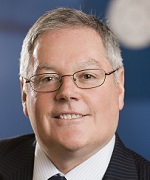The Federal Government has released the draft legislation required to raise the education, training and ethical standards for financial advisers but industry associations are concerned that time frames are too short and the legislation may be flawed from the start.
The draft legislation, which was released on 3 December, will have a one-month consultation period ending on 4 January 2016, the same as the consultation period for the Life Insurance Framework draft legislation released on the same day.

Association of Financial Advisers, chief executive, Brad Fox was concerned over the short length of the consultation period but welcomed the draft legislation stating the AFA welcomed the rising professionalism of the financial advice industry.
“Legislation on professional standards will go a long way towards lifting consumer perceptions of the financial advice profession. The draft legislation is promoting progress towards achieving greater public recognition of the emerging profession of financial advice,” Fox said.
Many of the reforms have been flagged in recent years by reviews, inquiries and committees with the Government committing to the following in the draft legislation:
- New financial advisers will require a degree, undertake a professional year and pass an exam.
- The Government will recognise an independent industry-established standard setting body, operational from 1 July 2016 that will set education standards, professional year and continuing professional development requirements, as well as develop a comprehensive code of ethics for financial advisers.
- Existing advisers will be provided a transition process and will be required to complete an appropriate degree equivalent (or have a recognised transition pathway determined by the independent standard setting body), and pass an exam.
- All advisers both new and existing will be required to undertake continuing professional development (CPD) and be party to a code of ethics.
- The new education and training requirements will be effective from 1 July 2017, with the code of ethics requirements coming into force from 1 July 2019.
Assistant Treasurer Kelly O’Dwyer said the changes would represent a “a substantial change to the current regulatory environment for financial advisers” but would produce significant benefits for consumers.
“These reforms, recently announced in the Government’s response to the Financial System Inquiry, have widespread support across industry participants, professional bodies and consumer representatives of the need to raise standards for financial advisers in order to improve public confidence and trust in the sector,” O’Dwyer said.
The Financial Planning Association (FPA) has also welcomed the release of the draft legislation as a good starting point but stated that some elements are “not workable”.

FPA, chief executive, Mark Rantall said better alignment was needed to match the policy objectives of developing a professional framework with Rantall highlighting the proposal to require planners to sign up to a code of ethics, without having to do so as part of a professional body, as an area of concern.
“This would create an inherent unworkable conflict for planners as they would be required to follow the code at the same time as sanctioning themselves for any breaches. This change would also not improve on the model we have today.
“The FPA has data that proves financial planners who are not subject to a professional framework through membership of a professional body are 90 times more likely to be involved in ASIC banning and enforcement action,” Rantall said.
He also said the FPA was concerned about the proposed transition period for existing financial planners to meet higher educational standards and that the timeframes were too short for practicing advisers.
“Giving existing financial planners only two years to complete a degree or equivalent is not workable. The meaning of ‘equivalent qualification’ also needs to be clarified to include professional qualifications such as the Certified Financial Planner (CFP) designation. The FPA will be advocating for appropriate recognition of our members who have completed higher levels of training and qualifications than those required by the law,” Rantall said.
“The enshrinement of the term financial adviser/planner will further protect consumers and provide ASIC with the necessary penalty provisions to stop unauthorised individuals from misrepresenting themselves and exploiting consumers.
Advisers wishing to view exposure draft legislation and explanatory material or lodge a submission can do so via the Treasury website.




The FPA may be lobbying to have CFP recognised as an equivalent qualification, but clearly CFP is no such thing. For legitimate CFPs who have completed the degree prerequisite and postgraduate level coursework and exam, CFP is actually a far superior qualification, not an equivalent. Legitimate CFPs should not need to do any further study or examination.
However CFPs acquired through grandfathering are of a much lower standard than the new requirements, and the govt will rightly point out that they have not met the new standards.
The problem is that there are two vastly different standards of CFPs, yet the FPA refuses to differentiate between them and identify which planners fall into which category. The FPA is looking to give the grandfathers a free ride based on the higher standards attained by legitimate CFPs. Unfortunately it is likely to lead to legitimate CFPs being dragged down to the lowest common denominator level of the grandfathers.
The FPA needs to recategorise grandfathered CFPs right now, so they stop dragging down the standards and credibility of the CFP program, and FPA can say to the govt and the public “all CFPs have completed a degree and additional postgraduate level studies and examination”.
Comments are closed.